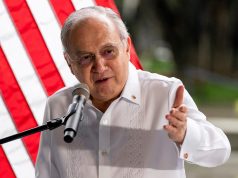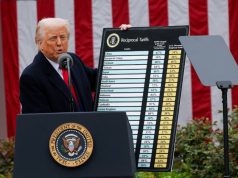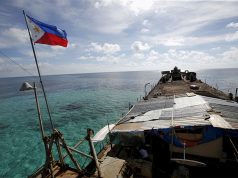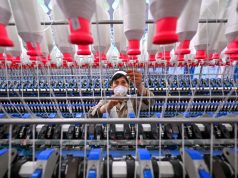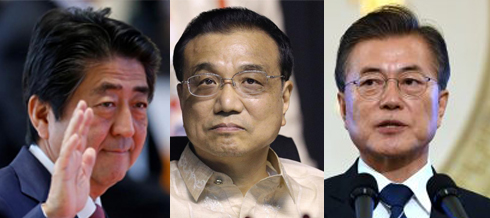
MANILA, Philippines — East Asian leaders raised the issue of increasing protectionism on Tuesday, November 14 in the hopes of spurring discussions on further cooperation with the 10 member-states of the Association of Southeast Asian Nations.
In their opening remarks during the 20th ASEAN Plus Three (APT) Summit, Chinese Premier Li Keqiang, Japanese Prime Minister Shinzo Abe, and South Korean President Moon Jae-In noted the challenges protectionism as an economic policy had posed to their respective countries.
The International Monetary Fund has noted that Asia faces “significant” uncertainty and risks of downside growth from any sudden tightening in global financial conditions or a rise in protectionist trade policies.
The three leaders also acknowledged the instrumental role of first APT summit to their countries’ recovery from the 1997 Asian financial crisis.
Li expressed hopes the regional bloc and East Asian countries could build a consensus and stressed China’s support and cooperation with ASEAN integration and the East Asia Economic Community.
For his part, Abe called for strengthening financial cooperation between ASEAN member-states and East Asian countries.
“In the midst of concerns about the rise of protectionism and inward-looking orientation in the world in order to enhance predictability of the economies of the region and the world to mitigate volatilities and to maintain and strengthen the free trading system, the significance of financial cooperation between the ASEAN plus three becomes increasingly greater,” Abe said in Japanese.
Abe also urged the strengthening of the Chiang Mai Initiative and the ASEAN Plus Three Macroeconomic Office.
The Chiang Mai Initiative is a currency swap agreement among the finance ministries and central banks of ASEAN members states, Japan, China, and South Korea that aims to provide financial support for short-term liquidity problems.
The AMRO, on the other hand, is the regional macroeconomic surveillance unit of the Chiang Mai Initiative.
He also announced that the APT emergency rice reserve would be provided to Iligan City and surrounding areas in Mindanao even as he requested for the input control on Japanese food stock be lifted based on scientific grounds.
The South Korean president, meanwhile, reiterated the need to bring the collective experience of the APT brought about by the 1997 Asian financial crisis to a new level that would further provide protection and care to the lives of citizens within the region.
“Let us overcome the complex challenges including protectionist and soft center approaches, polarization, and climate change,” Moon said in Korean.




